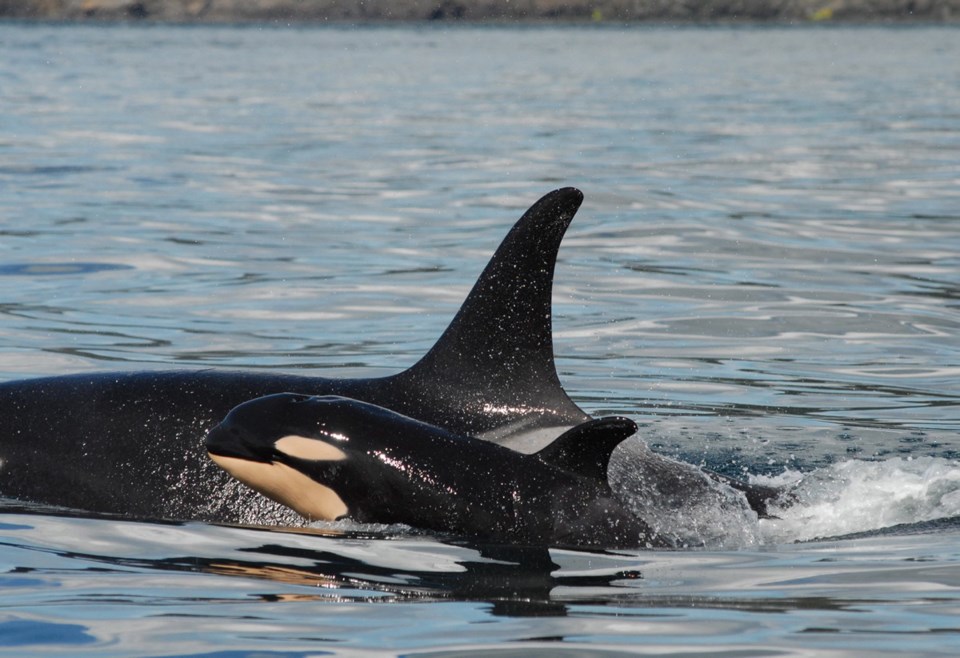Whale watchers in and around Vancouver Island will soon be able to fill their cameras with baby pictures.
Orca researchers confirmed the birth of J50, the latest offspring of J16, a 42-year-old animal who has already mothered three others. While spotted and confirmed on Tuesday, it’s believed the baby was born two days ago.
Shari Tarantino, president of the Orca Conservancy, said J50 is the first baby born to the whales in the area in about three years.
“This is really good news,” Tarantino said in a telephone interview from Seattle. “I just hope 2015 gives this little whale a real positive break here.”
She said as a member of J-pod, the animal belongs to a group that hangs out in and around southern Vancouver Island in the Strait of Georgia, Puget Sound and the Juan de Fuca Strait. So whale watchers setting out from Victoria might be in for a treat.
But until knowledgeable whale types can see the new baby breaching — that is, leaping out of the water and exposing its underside — its sex will remain a mystery.
J50 will not be officially counted as a member of the 77 resident orcas living in the area in J, K and L-pods. Mortality among young orcas is too high.
“Most of the concern comes down to salmon,” said Tarantino. “We have got to get the salmon going because they [orcas] are just not eating well.”



